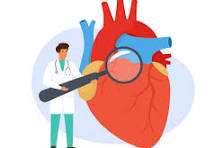Mon-Sat 9am-7pm











Sports medicine is a fast-growing healthcare field that focuses on the treatment of athletic injuries. Sports medicine healthcare providers help athletes and other physically active patients improve movement and performance. These professionals also work to prevent illness and injury and treat sports-related injuries.
The field of sports medicine encompasses a variety of career paths, including physical therapy, athletic training, and exercise physiology. Those interested in healthcare and sports may find a career in this industry highly rewarding.
A bachelor's in sports medicine or a related field represents the minimum degree you need to work in most sports medicine careers. After earning your bachelor's degree, you can continue your education in a master's program or look for entry-level positions. As some master's programs require applicants to possess relevant professional experience, you may need to work for a few years before applying to graduate school.
Sports medicine master's programs go into greater detail than bachelor's programs. They often include extensive, hands-on requirements and academic research that results in a thesis.
Master's programs frequently fall into one of two categories: career preparation or doctorate preparation. The former stresses practical knowledge and skills, while the latter emphasizes academic research skills. Due to the specialized nature of master's programs, these often prepare students for specific sports medicine careers.
This occupation combines sports medicine with information technology. Health informatics use technology to provide better care and improve patient outcomes. Prior to starting their careers, graduates often earn the certified specialist in business intelligence certificate.
Some graduates with a master's in sports medicine pursue executive leadership positions. These professionals' responsibilities may include team management, strategic planning, and analyzing business strategies.
Athletic trainers need specialized training to work with people recovering from sports injuries. They focus on injury prevention, common disabilities, and differentiating treatment for men and women.
Kinesiologists study how anatomy, physiology, and lifestyle choices affect physical health. Kinesiologists who specialize in sports medicine can work as personal trainers and physical therapy assistants.
| Job Title | Entry-Level 0-12 Months) |
Early Career 1-4 Years) |
Midcareer 5-9 Years) |
Experienced 10-19 Years) |
|---|---|---|---|---|
| Sports Medicine Physician | $174,350 | $179,810 | $186,610 | $195,210 |
| Occupational Therapist | $61,850 | $64,560 | $71,130 | $76,060 |
| Athletic Trainer | $39,410 | $40,760 | $45,570 | $49,180 |
There is a demand for sports medicine specialists and trainers at numerous levels, from children's sports leagues, high school and college athletics to the professional level. These different levels provide the opportunity for sports medicine specialists to advance and earn high-profile positions. It also means that there are various entry-level positions for those wanting to start a career in the field.
As a sports medicine specialist, you work primarily with athletes and help them with rehabilitation and training so they can return to their sport. It can be satisfying to see the results of motivating and preparing an athlete to perform well. It's also gratifying to see how the training regimens you create help athletes achieve the results they desire. Observing demonstrable improvement, whether it's assisting in rehab from an injury or improving performance, can make the position fun for someone who is results-oriented.
Depending on the career path you take, being a sports medicine specialist can be an exciting career. Your work environment is variable, and you may experience different issues to solve with your clients each day. You may also work with a number of clients who keep your work interesting. If you're working for a team, the success of that team partially depends on you, which can be exciting and bring you pride in your work.
A sports medicine specialist has a variety of potential career paths. High schools and colleges across the country need specialists and trainers to assist with their sports programs. Athletic organizations and park districts also sometimes employ sports medicine specialists. Beyond that, there is the opportunity to go into business for yourself and treat athletes independently. Another potential career option is to become a personal trainer or to work as a trainer in a fitness center.
There's prestige in having a level of medical expertise. Combining this with sports, an area with a high level of cultural interest, professionals may feel their career is important. This contributes to job satisfaction. Being a sports medicine specialist also enables you to work with athletes and gain access to sports games, which can attract professionals to this career.
:Sports medicine specialists sometimes are responsible in high-pressure situations. For example, if an athlete sustains an injury, they may require your services immediately to maintain their athletic ability and career. Many careers have a degree of pressure and some professionals prefer high-pressure environments that highlight their skills, but the pressure and high-profile nature of the position is something to consider.
Many of the positions available to a sports medicine specialist offer unusual hours that don't align with a standard 40-hour workweek. If you're working for a team, you may travel, work nights and weekends. Sometimes you're on call or have to assist an athlete you've been treating on short notice.
There is the potential for conflict in sports medicine. For example, the desire for a team to win a game might conflict with what's best for one athlete you're treating. If a coach wants a player to play who is unable due to injury, this can create a challenging circumstance for a sports medicine specialist. Also, there might be times when an athlete wants to return to their sport even if you advise against it and believe further rehab of an injury is necessary. Offering your medical expertise may resolve issues in these situations.
A sports medicine specialist requires at least a college degree and, for higher-level positions, an advanced degree or a doctorate degree. Common areas of study include kinesiology, athletic training, anatomy or a related field. Aside from education requirements, employers may require a license for many positions available to a sports medicine specialist. These factors require some level of upfront investment by a person interested in pursuing a career in this area.
Compassion
Compassion plays a vital role in sports medicine careers. Professionals must possess empathy for their patients and a genuine desire to help others. This skill cultivates patient trust and helps professionals provide higher levels of care.
Communication
Excellent oral and written communication skills allow sports medicine professionals to understand patients' needs and deliver effective treatment plans. These skills also promote professional collaboration and learning.
Research
Sports medicine careers require professionals to stay up to date with the latest discoveries and advancements. Students in sports medicine degree programs hone research skills applicable to their career through research papers, projects, and other coursework.
Organization
Organizational skills help sports medicine professionals manage dozens of patients, meet deadlines, and keep track of important information. These skills are particularly crucial for managers who are responsible for an organization's budget and personnel.
Dexterity
As physical therapists spend much of their time therapeutically touching patients, they must possess excellent physical dexterity. This skill allows professionals to guide and assist patients without inflicting discomfort or harm. Internships and supervised mentoring help sports medicine students hone this skill.
Call us at +91 9205084085, Monday - Friday, 9 am - 7 pm


